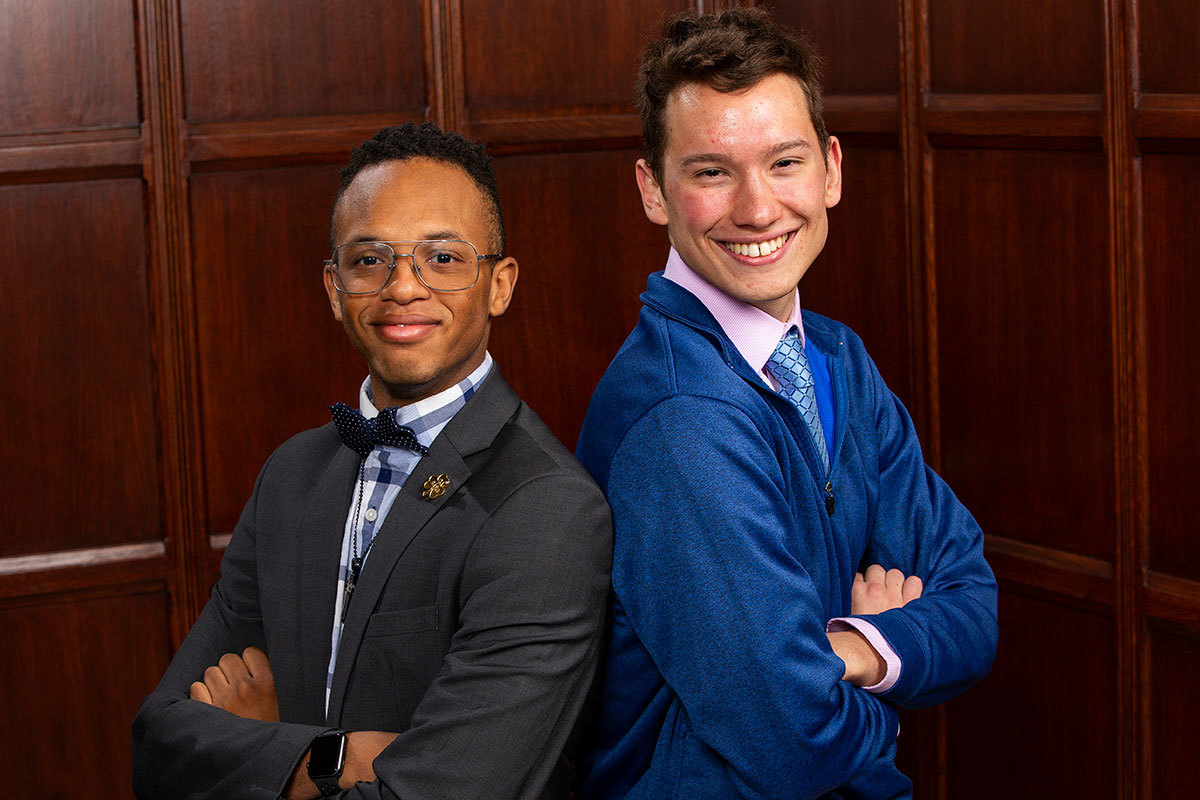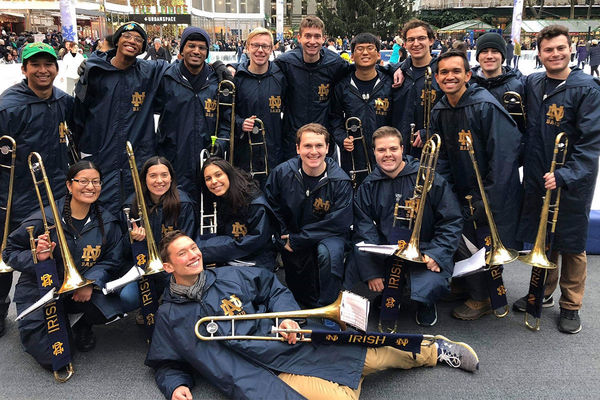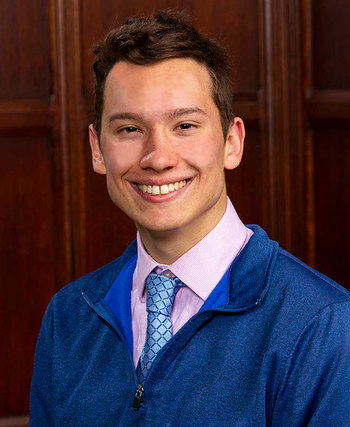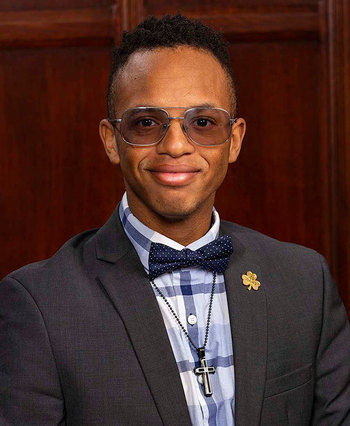
Seniors Kendrick Peterson and Andrew Jarocki are on opposite ends of the political spectrum, but they brought their perspectives together for research they hope will make an impact on the South Bend community.
The pair chose to team up for their Hesburgh Program in Public Service capstone project — searching for a solution to reducing recidivism that Democrats and Republicans can agree on.

“We wanted to find an issue where there’s real possibility of bipartisan success — something that both sides can get a win on — because that’s something you don’t hear about or see a lot of these days,” Jarocki said.
The political science majors first became friends through the Notre Dame Marching Band, where they played trombone, and both spent a semester away from campus in the Notre Dame Washington Program.
After deciding to pursue a joint capstone project, they chose the topic of criminal justice reform, largely inspired by Peterson’s summer internship as an assistant to a public defender at South Bend’s Frederick Juvenile Justice Center.
“The lawyer that I was working with that summer was phenomenal, but she was so overwhelmed by the amount of work that was hitting her,” Peterson said. “She just wasn’t able to help everyone. That made me incredibly passionate about looking into why she was in that situation in the first place.”
Peterson and Jarocki eventually narrowed their focus to studying how halfway houses could help reduce recidivism — the tendency for incarcerated individuals to reoffend.
“We thought it was important to have our project offer a practical way of implementing ideology for the community. When I heard about the people at the Moreau Initiative, I knew what they didn’t need was for us to talk about them without offering some type of solution. We came to the conclusion quite quickly that we wanted to make an impactful change.”

Jarocki came upon a key component of their project when he visited the Westville Correctional Facility, a prison about 45 miles west of South Bend, where he sat in on a few classes of the Moreau College Initiative. The program allows select inmates to take college-level courses from Holy Cross and Notre Dame faculty in pursuit of Holy Cross associate and bachelor’s degrees that will accelerate their eventual re-entry into society.
One inmate mentioned that he would find it helpful if a halfway house existed for students from the Moreau program — both so they could continue the intellectual community fostered at Westville and have a place to live that gets them back on their feet as they seek employment and reintegrate into society while avoiding falling into old habits.
“We thought it was important to have our project offer a practical way of implementing ideology for the community,” Peterson said. “When I heard about the people at the Moreau Initiative, I knew what they didn’t need was for us to talk about them without offering some type of solution. We came to the conclusion quite quickly that we wanted to make an impactful change.”
To explore the feasibility of creating a “Moreau House” in the South Bend area, Peterson and Jarocki interviewed community activists and visited Dismas House, a halfway house in South Bend, to talk to residents and staff. To get other local perspectives, they interviewed professors who live in South Bend. While people are generally concerned about living near a halfway house, they found, there were very few objections to halfway houses along ideological lines.

“Within criminal justice reform, there’s actually quite an untalked-about desire on both sides of the aisle to do something, though for very different reasons,” Jarocki said. “It’s been really interesting to see that even though there’s different logic, it’s very clear that it’s time for a bipartisan win, and it’s doable. It really is feasible.”
The final version of their project is twofold, serving as overall research on halfway houses as a small component of a bipartisan solution to criminal justice reform and as a proposal for a Moreau House to be opened locally. They had planned to hold a presentation on campus, but due to the coronavirus pandemic prompting cancellation of in-person events, they are exploring other ways to share their project publicly.
“The scope of our project is so small and so specific because we wanted it to have an impact,” said Peterson, who also has a minor in business economics. “We hope to get the ball rolling so someone else can pick the project up after we graduate.”
Regardless of what the future holds for their capstone, Jarocki and Peterson are grateful for what they have learned from their experience and hope to continue to develop practical solutions for communities.
Inspired by his summer at the Juvenile Justice Center and his interest in public defense, Peterson — who is a QuestBridge Scholar, Gates Millenium Scholar, Building Bridges Fellow, and Public Policy International Affairs Fellow — will pursue graduate degrees in public policy and law at the University of California, Berkeley next year. Jarocki will join a service program called Lead for America, returning to his home state of Minnesota to work with a local government on housing policy.
Both have hopes of running for public office one day and believe their Arts and Letters education has prepared them to find the most effective policy solutions through gathering and analyzing perspectives within a community.
“Looking at a problem as complex as criminal justice reform requires you to think on a lot of different axes — of equity, of finance, of politics, of community versus national,” Jarocki said. “Arts and Letters does a great job of making you think in those different terms. It’s definitely instilled in me a desire to go and take part in finding practical fixes for communities, wherever they are.”
“Looking at a problem as complex as criminal justice reform requires you to think on a lot of different axes — of equity, of finance, of politics, of community versus national. Arts and Letters does a great job of making you think in those different terms. It’s definitely instilled in me a desire to go and take part in finding practical fixes for communities, wherever they are.”
Originally published by at al.nd.edu on May 14, 2020.